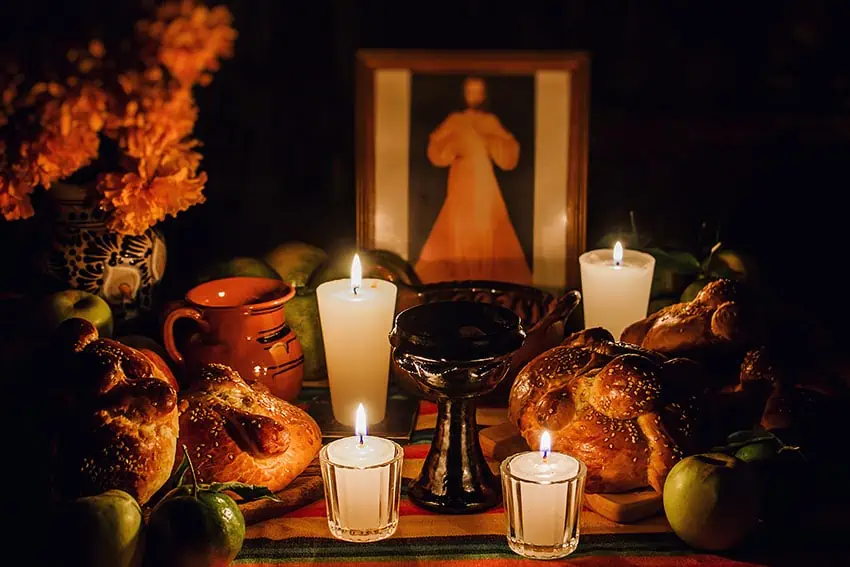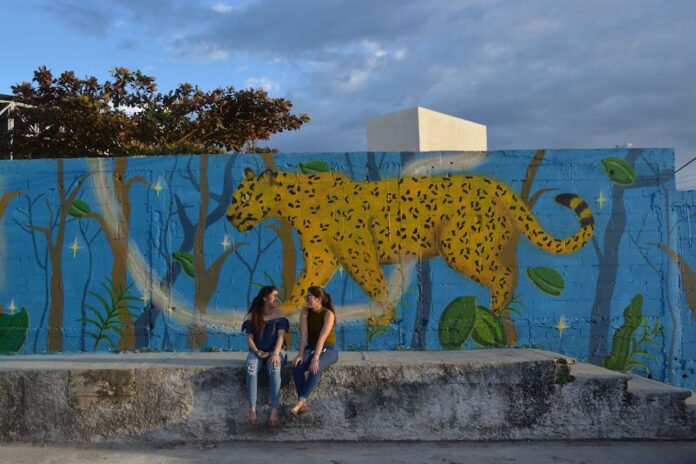In my previous article, I explored Mexico’s approach to time, which I have found tends to value quality experiences over productivity — a stark contrast to the Americanized view that often treats time as a commodity.
Living in Mexico has prompted me to question: Why does time exist?
Is it for experiencing life or merely a token to be converted into things?

I included a quote from Jerry Seinfeld that always stuck with me: “The secret of life is to waste time in ways that you like.”
I have been thinking about this a lot lately and have been diving deeper to understand what exactly I want to “waste” my time on and wanted to share my journey with you.
Staying true to my analytical nature, I’ve approached this quest in two complementary ways: first, by gathering wisdom from people’s life experiences (through personal conversations and research), books, podcasts and online research; and second, by examining cultural perspectives through metaphors in movies I have seen in my past. My research probably skews toward an American perspective, but I do believe it reveals universal truths that transcend cultural boundaries.
Collective wisdom from those who’ve lived it:
When asking people over age 50 about what advice they would give their younger selves, several themes emerged consistently. The following is a selective summary of what I found to be most relevant to my quest:
- On valuing relationships: Jobs and money will come and go, but neither compensates for what we are lacking in life. Invest in developing relationships. Take trips together. Go on adventures together. Build a community you want to be a part of.
- On worrying less about others’ opinions: When we are young, we tend to worry about what everyone else thinks, and when we are old, we finally realize that nobody else was thinking about us all along. Learn to know you, like you and you will be so much happier with “YOU.” I noticed this quote by Christopher Walken: “If you knew how quickly people forget the dead, you would stop living to impress people.”
- On taking care of health: Having a healthy body along with a healthy mind is important, but they often don’t co-exist. It’s hard to change your life until you make small changes in your daily routine. A quote from an elderly woman: “Being thin is not the end-all, be-all. Eat the piece of pizza and order the dessert. I wasted so much of my late teens and early twenties obsessing over my weight and caloric intake.”
- On valuing time: Take risks, learn to fail, travel and see the world when you are young — it informs your choices ahead. You have to slow down to speed up. Many people mention that they regret putting off meaningful experiences until retirement.
- On emotions: Learn to let go. Don’t hold grudges. Don’t get angry when you’re stuck in traffic; focus on what you can control. Not everyone deserves power over your emotions; be selective. Don’t feel the need to correct dumb people. Healing doesn’t mean you will always feel joy, it just means you no longer need to make sense of what happened.
On contrasting perspectives on life and death:
Intriguingly, when I did my online research around what we fear the most, it revealed that public speaking ranks as the most common fear, with death being the second most common fear.
This was surprising to me since we can avoid public speaking, but death remains inevitable. So, why should we fear it all through life? This may also reflect a fundamental difference in cultural approaches to mortality.
American culture often portrays death as mysterious, horrifying and ultimately an individual experience. In contrast, Mexican culture seems to view death as part of life’s cyclical continuum, similar to their conception of time. This perspective manifests beautifully in Día de los Muertos celebrations, where death isn’t feared but celebrated as renewal and rebirth. For many Mexicans, death represents a collective experience where spirits reconnect with loved ones — a view I find more comforting and inherently less fearful.
The most consistent message across philosophical and religious traditions is that life’s meaning emerges not from pursuing happiness directly, but through purposeful engagement with challenges.

A few of my favorite books, Viktor Frankl’s “Man’s Search for Meaning,” Paulo Coelho’s “The Alchemist” and “The Book of Joy” by the Dalai Lama and Desmond Tutu all illuminate this truth from different angles.
Though Mexico isn’t officially designated a “Blue Zone,” author Dan Buettner’s research findings bring this point home for me in a tangible way.
Mexican cultural practices align remarkably with Blue Zone principles. Buettner’s research into Mexico’s unique position among the world’s happiest populations reveals a combination of cultural, environmental and social practices that align with the principles observed in Blue Zones. He emphasizes that Mexicans derive profound happiness from extended familial and social networks, which provide both emotional and financial resilience.
The concept of family extends beyond the nuclear unit to include aunts, uncles and distant cousins, creating a “broad safety net” that buffers against adversity. He observes how Mexicans prioritize social interaction over wealth accumulation, with the happiest individuals engaging in face-to-face socialization for up to six hours daily. His research also suggests Mexicans, culturally, associate happiness with the ability to make choices aligned with personal values, even while up against structural limitations.
Cultural perspectives from some movies I have watched:
In my youth, I remember two movies in particular that explored the purposefulness of life.
In my 20s, I watched Monty Python’s “The Meaning of Life.” The movie explores life’s stages through absurdly humorous, Salvador Dali-like sketches and songs. Its message seems to be that life is ridiculous and chaotic, so it would be best to just laugh at it. It was quintessential British.
Even though I had watched it a couple of times in my twenties (with fellow intellectual geeks in graduate school), between the heavy British accent and the satire, I think the message was a bit lost on me. However, it is worth noting that many prominent comedians of today share the same view.
“The Hitchhiker’s Guide to the Galaxy” is another movie that I watched in my 30s. It basically mocks humanity’s delusion for grandeur, suggesting that life’s lack of inherent meaning is not a problem to solve but a reality to embrace. I found that perspective funny yet confusing; back then, I was too young to care about such deep and intricate life lessons anyway.
Recently, I decided to rewatch the Pixar movie “Coco” after witnessing/participating in Día de los Muertos celebrations in Mexico for the past few years. Coco masterfully interweaves age-old traditions, interpersonal connections and questions around our own existence, artfully showing the nature of time being cyclical. This time around, my biggest takeaway from “Coco” was that perhaps self-discovery is the biggest and only purpose of life — in this case, Miguel’s journey of life, reconciling his roots and values with his personal dreams.
These insights illuminate why Mexico’s cyclical approach to time resonates so deeply with me as I have gotten older, where moments are not spent but savored.
My learning is that the quantitative approach to time that we take often leads to comparative frameworks: Did I accomplish more today than yesterday? Am I “using” time better than others? Did I achieve more in a given time than others?
These questions prioritize comparisons over subjective fulfillment. Inadvertently, applying that thinking also often prevents me from living in the present. By contrast, qualitative experiences are deeply personal, based on how something makes me feel.
A conversation with a loved one, a walk through the Zócalo or an hour spent watching the sunset over the Pacific holds a value precisely because it defies quantification and comparison. It takes a little trust, courage and patience to prioritize my inner voice but my environment is the catalyst in that journey.
Tamanna Bembenek was born in India, studied and worked in the U.S. and now lives in Mexico with her husband, Travis. They are the co-owners of Mexico News Daily. Check out more of Tamanna’s writing below.
The paradox of simplicity: A perspective from MND co-owner Tamanna Bembenek
Becoming a kid again: How Mexico has unleashed my inner childhood superhero
Mexico and mental health: Exploring the power of traditions and faith
